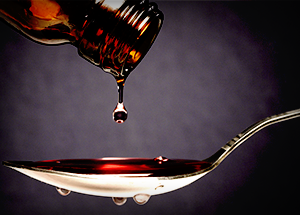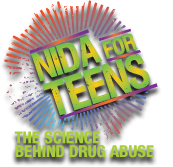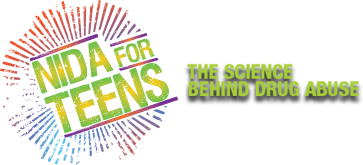Dextromethorphan (DXM) and Cold Medicine Facts
 Dextromethorphan (DXM) is the active ingredient found in many over-the-counter cough and cold medications. Taken in the recommended amount, these medications are safe and effective. But taking high doses can be dangerous, and other active ingredients found in these medications can add to the risks.
Dextromethorphan (DXM) is the active ingredient found in many over-the-counter cough and cold medications. Taken in the recommended amount, these medications are safe and effective. But taking high doses can be dangerous, and other active ingredients found in these medications can add to the risks.
Facts on Dextromethorphan (DXM) [PDF - 447 KB]
Facts on Prescription and Over-the-Counter Drugs [PDF - 428 KB]
DXM is taken orally, usually as a pill or liquid syrup. Some people have begun to use a powder form of the drug. People who abuse it in excessive amounts sometimes refer to DXM as robo-tripping, skittling, dex, or candy.
In very large quantities, DXM can cause effects similar to those of ketamine or PCP, because DXM affects similar sites in the brain. Ketamine and PCP are called "dissociative" drugs, which means they create feelings of being detached from oneself or the environment, and they distort perceptions and emotions.
Other effects of DXM abuse can include impaired motor function, numbness, nausea and vomiting, and increased heart rate and blood pressure. On rare occasions, hypoxic brain damage can occur. That means little or no oxygen can get to the brain.
When someone you care about has a drug problem, it's not always easy to know what to do. If someone you know is abusing or misusing prescription drugs, encourage him or her to talk to a parent, school guidance counselor, or other trusted adult. There are also anonymous resources, such as the National Suicide Prevention Lifeline (1-800-273-TALK) and the Treatment Referral Helpline (1-800-662-HELP).
The National Suicide Prevention Lifeline (1-800-273-TALK) is a crisis hotline that can help with a lot of issues, not just suicide. For example, anyone who feels sad, hopeless, or suicidal; family and friends who are concerned about a loved one; or anyone interested in mental health treatment referrals can call this Lifeline. Callers are connected with a nearby professional who will talk with them about what they're feeling or about concerns for family and friends.
In addition, the Treatment Referral Helpline (1-800-662-HELP)—offered by the Substance Abuse and Mental Health Services Administration—refers callers to treatment facilities, support groups, and other local organizations that can provide help for their specific needs. You can also locate treatment centers in your state by going to www.samhsa.gov/treatment.




